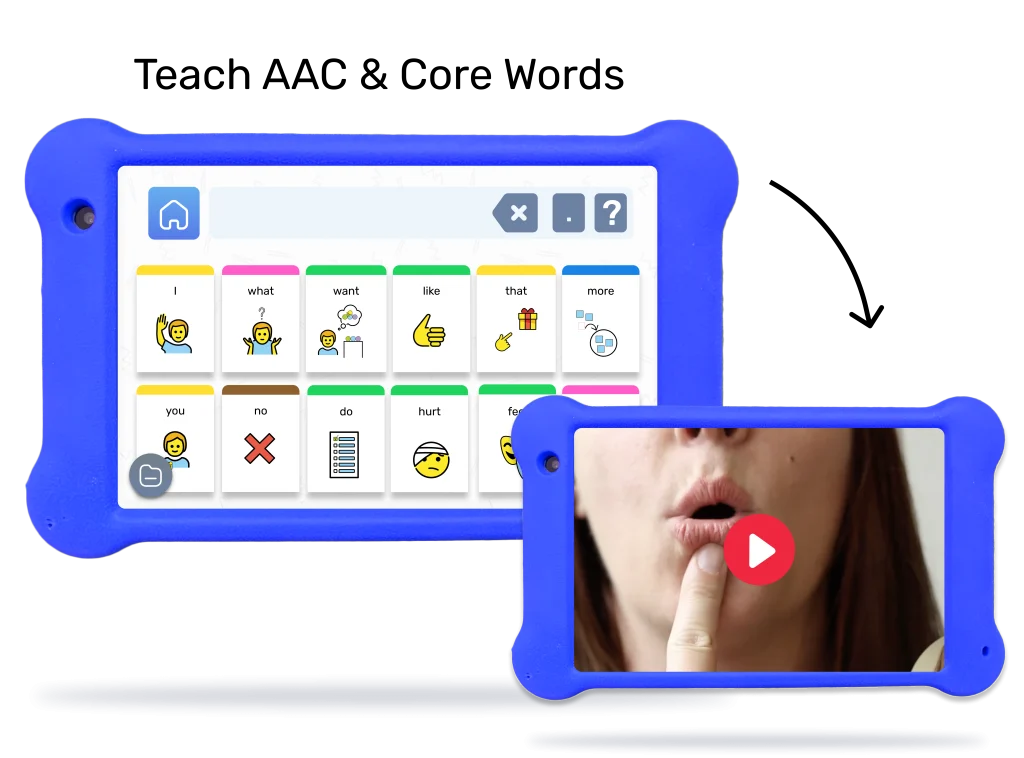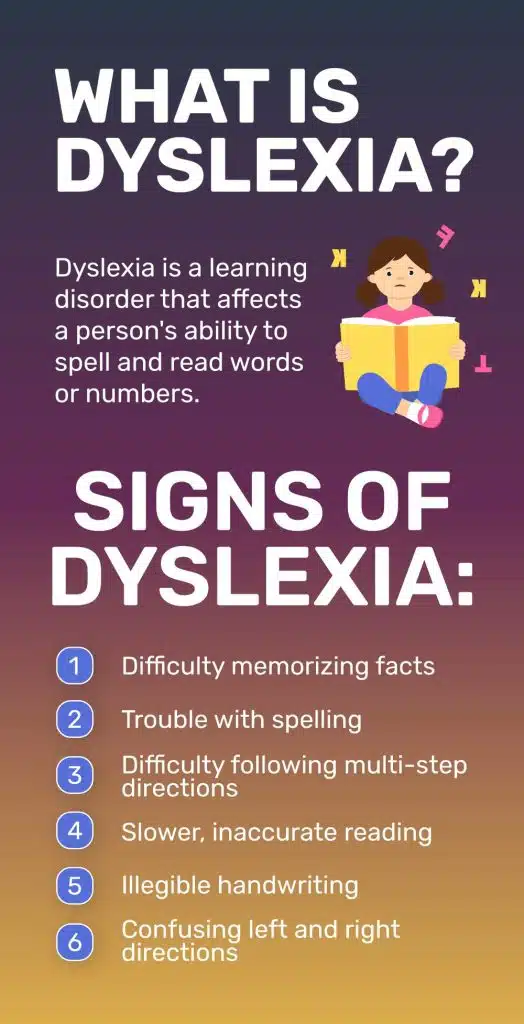Did you know that nearly 17% of people might have dyslexia? Today, we’re peeling back the layers on if dyslexia is genetic. Join us as we delve into the genetic clues, dyslexia-related genes, and the crucial role of environmental factors, all while gaining a deeper understanding of how to support children living with dyslexia.
Table of Contents
Dyslexia 101: A Quick Refresher
First, let’s understand what dyslexia is. Dyslexia is a learning difference that affects reading, writing, and spelling abilities in kids with thinking and learning differences. It’s important to remember that dyslexia has nothing to do with intelligence. Many smart and creative people have dyslexia.
Dyslexia can show up in different ways, such as:
- Challenges with reading, writing, and spelling
- Difficulty recognizing words
- Problems with reading comprehension
“Which language games will help my kid the fastest?” 👇
Goally’s tablet has some of the top language learning games & apps that help kids learn their first 50 words, practice finger dexterity & fine motor skills, AND communicate with AAC.
Genetic Clues: Dyslexia’s Family Ties
Research shows that dyslexia has a strong genetic link. Studies of families and twins reveal that the chances of a child having dyslexia are higher if a parent or sibling also has it. In fact, about 40-60% of kids with a dyslexic parent will also show signs of dyslexia.
Here’s a breakdown of how dyslexia can run in families:
- Strong genetic connection
- 40-60% chance of dyslexia in kids with a dyslexic parent
- Higher risk when siblings have dyslexia

Read more: Dyslexia Symptoms | Parents Guide
Discovering Dyslexia-Related Genes
Scientists have found several genes that may be coincide with dyslexia. These genes affect how the brain processes language, how brain cells move, and overall brain development. All of these are crucial for reading and writing abilities. No single gene causes dyslexia, but a mix of genetic factors can increase the chances of this learning difference.
A few important dyslexia-related genes include:
- DCDC2: involved in neuron migration and development
- KIAA0319: influences neuronal migration and brain wiring
- DYX1C1: affects brain development and language processing
Read More: What are the Types of Dyslexia?
More Than Just Genetics: Environment and Dyslexia
While genetics play a big part in dyslexia, it’s important to recognize the role of environmental factors too. A child’s early exposure to language, the quality of their education, and social support can all affect how severe dyslexia symptoms are. Understanding and addressing these factors can help neurodivergent kids reach their full potential.
Some key environmental factors include:
- Early language exposure
- Quality of education
- Social support

Read more: Dyslexia Quiz for Kids
Building a Supportive World for Kids with Dyslexia
As a parent, you can make a huge difference for your child with dyslexia by offering support in different ways. Here are some tips for creating a caring environment for your neurodivergent kid:
- Encourage open communication: Talk to your child about their strengths and challenges, and let them know it’s okay to ask for help.
- Seek expert advice: Talk with teachers, therapists, and other specialists to create a support plan tailored to your child.
- Be patient and keep going: Progress might be slow, but every small step matters. Celebrate your child’s successes and encourage them to keep trying.
- Try out helpful tools: Tools like Goally’s learning tablet for kids can help children with dyslexia develop important skills with fun apps and activities.
Using assistive technology can also make a difference. Some examples are:
- Audiobooks and text-to-speech software
- Speech-to-text programs
- Spelling and grammar checkers

Goally | Teach Kids AAC & Core Words
Is your child facing challenges in expressing themselves or communicating effectively? Goally’s language apps support their journey in building essential communication skills! All of these apps are included our skill-building tablet made for kids.

The Word Lab and AAC Talker apps provide a simple, engaging platform for your child to learn core words and become a functional communicator right from the start. Customize the experience with a voice that suits them, and watch as their confidence grows in expressing their thoughts and needs!
But we don’t stop there. Our Balloon App helps build the skills needed to use AAC by engaging your child with fun, interactive “pop the balloons” exercises. It’s a game-changer for kids who need that extra boost in communication.
The Bottom Line: Solving Dyslexia’s Genetic Puzzle
So, is dyslexia genetic? The answer is yes – genetics play a big role in the development of dyslexia. However, environmental factors also impact the severity of symptoms, and a supportive environment can help kids with thinking and learning differences succeed. As a parent, your understanding and support can make a huge difference for your child with dyslexia. Remember, dyslexia isn’t a limitation; it’s just a different way of processing information. With the right support, encouragement, and tools like Goally’s learning tablet, your neurodivergent child can achieve their full potential.
FAQs About if Dyslexia Is Genetic
What is dyslexia? Dyslexia is a learning difference affecting reading, writing, and spelling abilities, unrelated to intelligence levels.
Is dyslexia a genetic condition? Yes, research shows a strong genetic link to dyslexia, with a higher prevalence seen in children with dyslexic parents or siblings.
Which genes are related to dyslexia? Genes such as DCDC2, KIAA0319, and DYX1C1 are associated with dyslexia, affecting brain development and language processing.
Does environment play a role in dyslexia? Yes, environmental factors like early language exposure, quality of education, and social support can influence the severity of dyslexia symptoms.
How can I support my child with dyslexia? Open communication, expert advice, patience, and supportive tools like Goally's learning tablet can significantly help children with dyslexia.
This post was originally published on 04/22/2023. It was updated on 11/22/2023.

Goally
We help parents teach their kids life skills, like doing bedtime and morning independently. Backed by science, we incorporate evidence-based practices and expert-informed designs in all of our apps and content.






